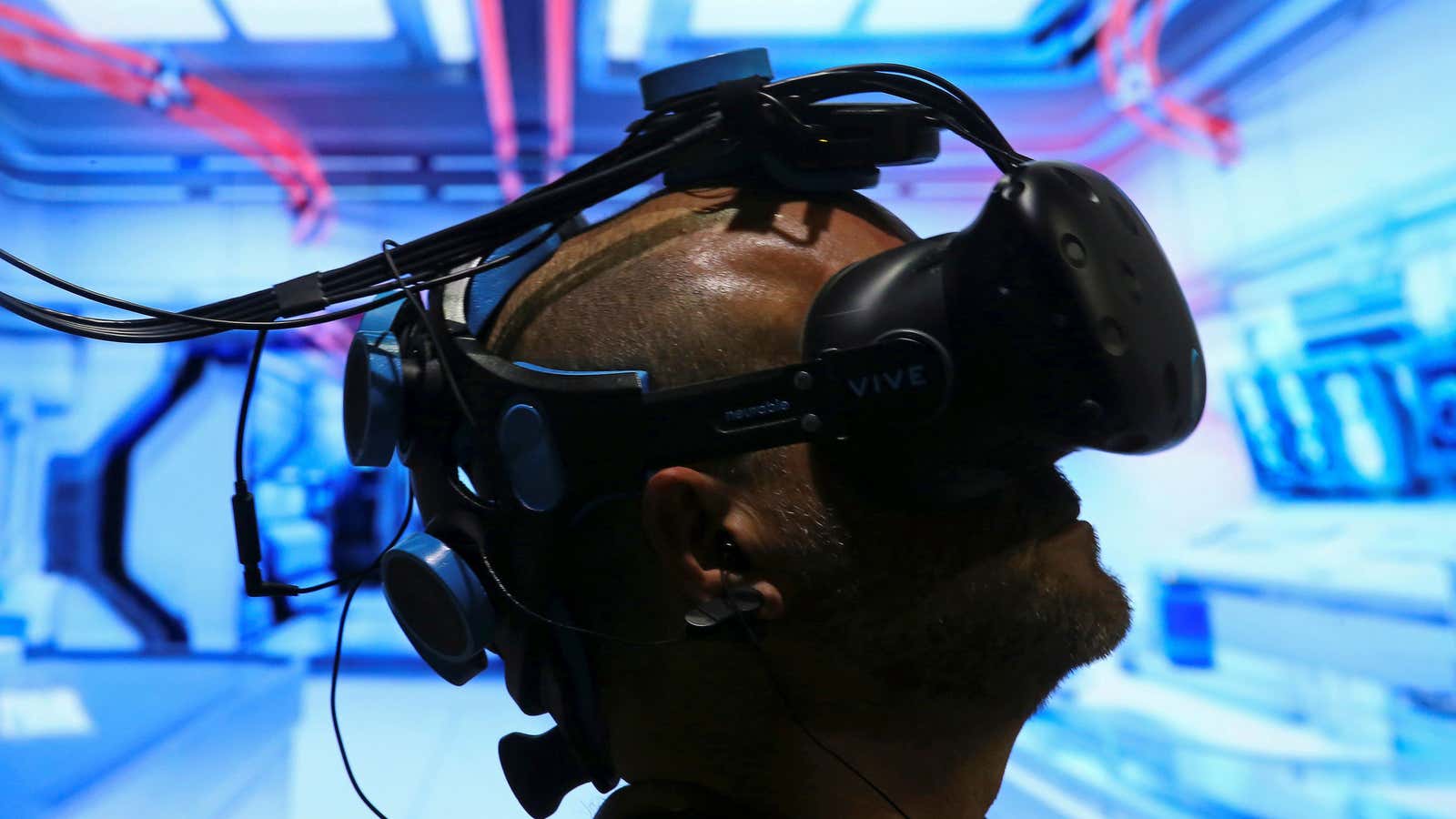Virtual reality movies may be over before they really started.
Google and the IMAX Corporation, two leaders in video technology, have reportedly abandoned a joint venture to build a line of VR cameras for filmmakers.
The initiative was first announced in 2016 and aimed to take advantage of IMAX’s experience building high-end cameras, along with Google’s Jump platform for creating and watching immersive 360-degree video. Google canceled the project late last year as it moved its focus toward augmented reality, Variety reported Aug. 20, citing a source close to the project. Neither company was immediately available to comment.
IMAX noted a final contractual payment owed to the company, tied to a “previously announced IMAX VR camera,” in its latest earnings report. The company also closed two of its seven VR centers, where customers could pay for short VR experiences they watch like movies, Variety reported separately last week, noting that the company’s VR future now seemed uncertain.
Renowned filmmakers such as Kathryn Bigelow and Alejandro González Iñárritu have experimented with VR in filmmaking to immerse viewers in unique human experiences or remote parts of the world, typically in short films of 10 minutes of less. But so far, no one has figured out how to make VR—which can be jarring and isolating to watch—work for the full length of a feature film.
However, there are those who are still willing to experiment with the nascent technology. Director Jonathan Ogilvie is developing a movie called Lone Wolf that would likely be the world’s first VR feature. The project is set to go into production this year.
Jungle Book director Jon Favreau is also reportedly using VR technology on the set of Disney’s upcoming live-action film, The Lion King, although primarily as a filmmaking tool. He’s using the technology to design virtual environments that the crew can choreograph and move set pieces around in before building the final—and probably very expensive—scenes. Favreau, who is one of the more tech-forward creators in Hollywood, has also been inspired by the game engines that video-game designers use to build projects without having to start their games from scratch, in his 3D film work.
